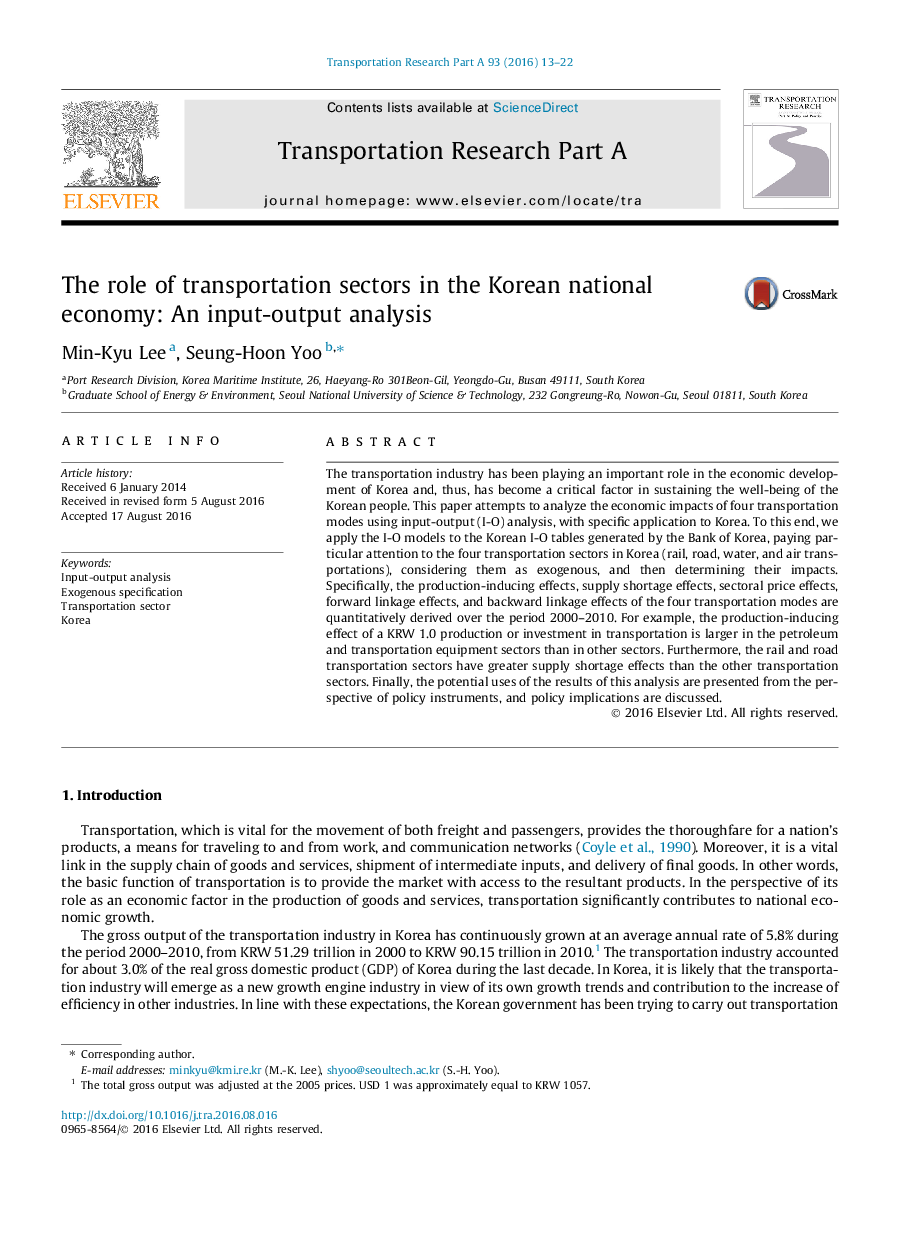| Article ID | Journal | Published Year | Pages | File Type |
|---|---|---|---|---|
| 4929097 | Transportation Research Part A: Policy and Practice | 2016 | 10 Pages |
Abstract
The transportation industry has been playing an important role in the economic development of Korea and, thus, has become a critical factor in sustaining the well-being of the Korean people. This paper attempts to analyze the economic impacts of four transportation modes using input-output (I-O) analysis, with specific application to Korea. To this end, we apply the I-O models to the Korean I-O tables generated by the Bank of Korea, paying particular attention to the four transportation sectors in Korea (rail, road, water, and air transportations), considering them as exogenous, and then determining their impacts. Specifically, the production-inducing effects, supply shortage effects, sectoral price effects, forward linkage effects, and backward linkage effects of the four transportation modes are quantitatively derived over the period 2000-2010. For example, the production-inducing effect of a KRW 1.0 production or investment in transportation is larger in the petroleum and transportation equipment sectors than in other sectors. Furthermore, the rail and road transportation sectors have greater supply shortage effects than the other transportation sectors. Finally, the potential uses of the results of this analysis are presented from the perspective of policy instruments, and policy implications are discussed.
Related Topics
Physical Sciences and Engineering
Engineering
Civil and Structural Engineering
Authors
Min-Kyu Lee, Seung-Hoon Yoo,
